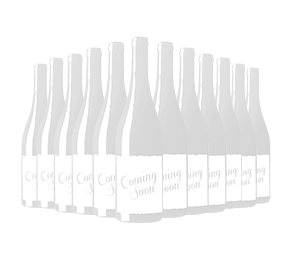Chat with Vinny
Want to keep your wine tasting its best? Our handy guide covers everything you need to know about storing wine at home – from temperature and light to opened bottles. Read on to find out more …
Whether you’re a casual sipper or an avid collector, it’s worth learning to store your wine correctly. It will help protect its flavours, structure and value – as well as overall enjoyment.
And don’t worry. You don’t need a sprawling underground cellar, complete with a spiral staircase and bespoke air conditioning. Just follow these simple tips and your wine will stay in great shape – whether they’re everyday favourites or wines you’re saving for a special occasion.
Here’s everything you need to know about how to store wine at home – including why it’s important, how long to keep open bottles and how to store your wine correctly.

Why is storing your wine correctly important?
When stored correctly, wine can improve with age, gaining depth, complexity and increasing in value.
Stored incorrectly? Well, wine can go bad – fast. Even expensive bottles can be ruined by too much heat, light, oxygen or vibration … which isn’t ideal.
How long should you store open wine bottles?
Once you’ve enjoyed a glass or two, you can store the rest of the bottle in the fridge for a few days. That’s because once a bottle is opened, air gets in and the wine begins to oxidise. But putting the cork back in and keeping it chilled slows down this process.
Sparkling wines lasts between 1 and 3 days.
Fortified wine lasts up to 28 days.
Top tip:
Always store open bottes standing upright – this stops any wine from seeping out.
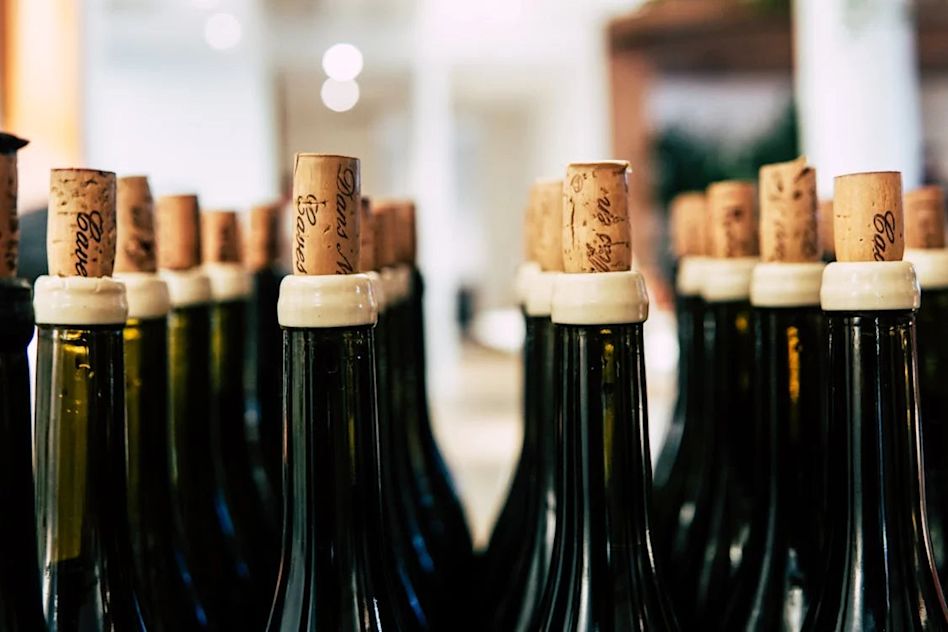
How to store your unopened wine correctly?
You don’t need your own personal cellar, or even a fancy wine fridge, to store wine correctly. Just follow these 5 simple tips for easy wine storage.
1. Store your wine at a consistent temperature
Temperature is one of the most important things to consider when storing your wine. The sweet spot is usually between 10-16°C – though this varies between wine styles.
More importantly, you want to avoid temperature fluctuations (this can cause the cork to expand and contract, letting air in and oxidising the wine).
For best results store your wine in a dark, dry, cool space.
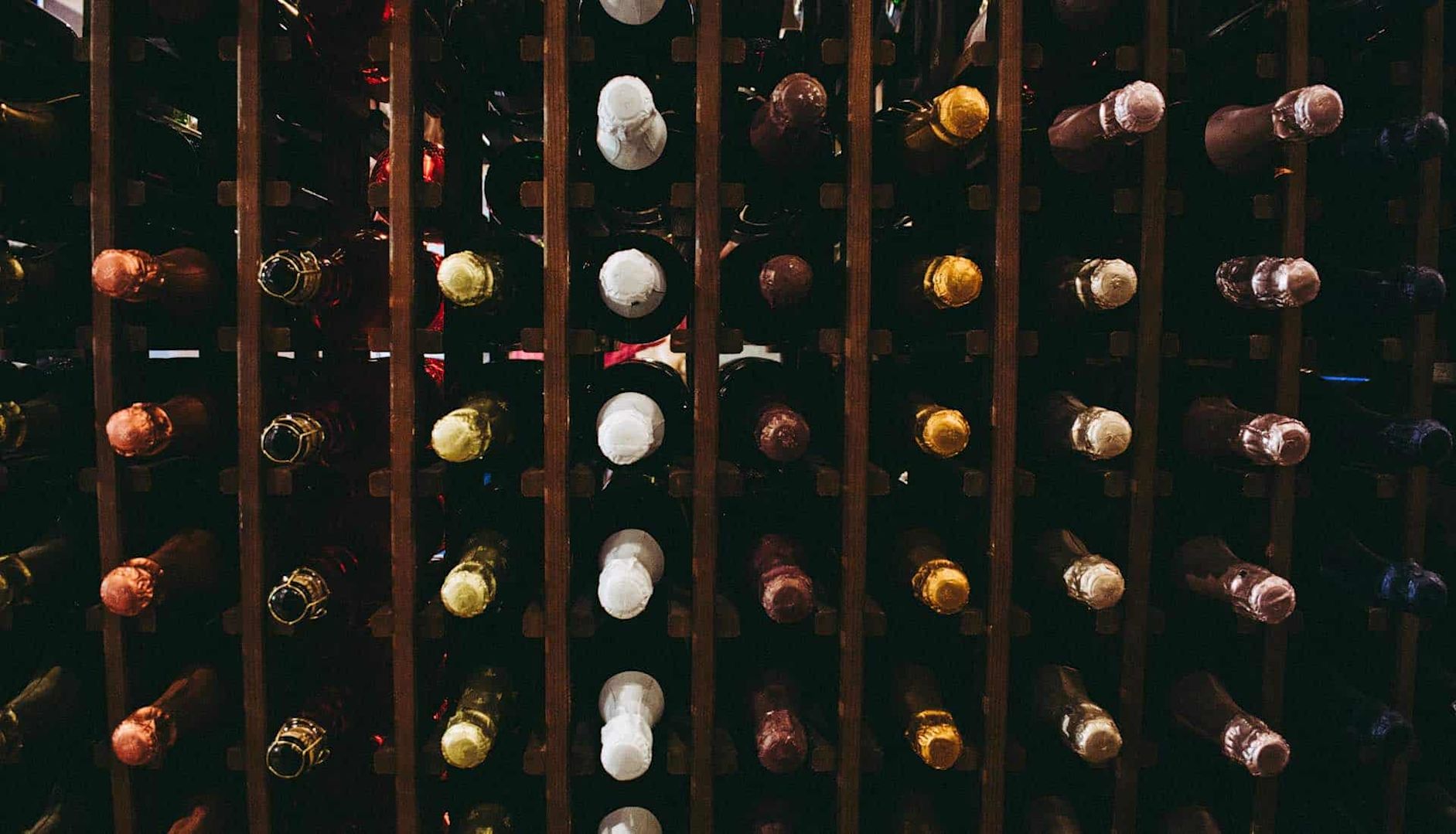
2. Avoid direct sunlight
When it comes to storing wine, consistency is key. Wines keep better when unbothered by fluctuations in light intensity and temperature.
Store your wine away from direct sunlight – UV rays can degrade wine, affecting a wine’s delicate flavours and aromas.
3. Store bottles away from vibrations
You should keep your wine away from any sources vibration as it can affect your wine in two ways.
Firstly, vibrations can disturb sediments in the wine and secondly, they can cause chemical reactions which mute your wine’s flavours.
We recommend storing your wine away from washing machines, bouncy floorboards and anywhere else vibrations may occur.
Choose a still, quiet spot – the back of a cupboard or corner of a garage could work well.
4. Store bottles horizontally
If your bottle has a cork, you should store it horizontally – preferably on a wine rack or in a wine fridge. This stops the cork from drying out and shrinking which is essential for long-term storage. Why? If a cork dries out, it allows air into the bottle which spoils the wine. This can cause a wine to mature early, or worse – turn to vinegar.
Bottles with screw caps don’t need to be stored horizontally – but it’s often the most space-efficient way.
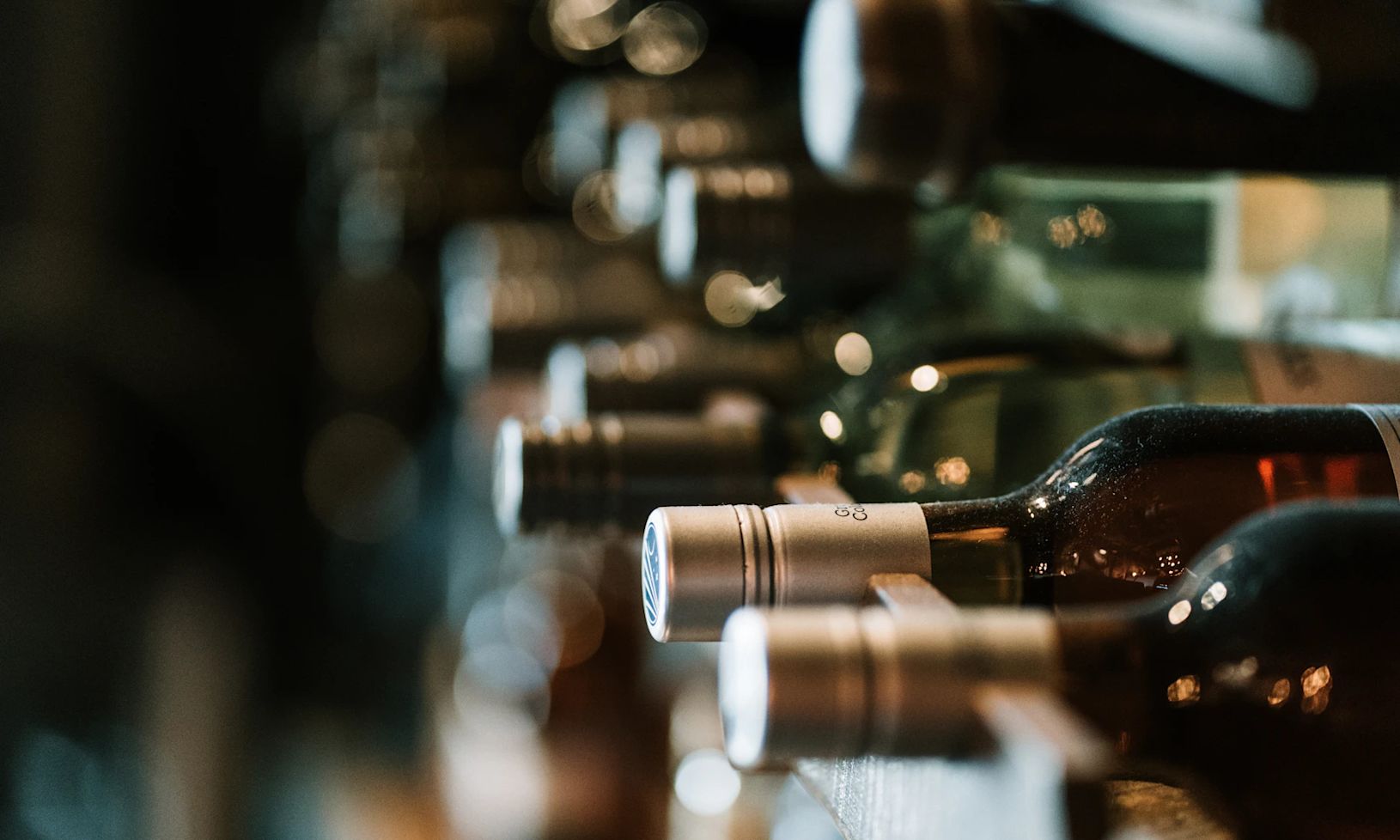
5. Watch humidity levels
Fluctuations in humidity can also impact a wine’s quality. You should ideally store your wine in a space that has 50-70% humidity. Too low, and you risk the cork drying out. Too high, and you risk mould or mildew which causes label damage.
How to store red wine?
Red wine is slightly more forgiving than white wine when it comes to storage … but consistency is still key.
Top tips for storing red wine:
Store horizontally if your wine has a cork.
Depending on style, store between 10-16°C.
Once opened, consume within 3-5 days.
Once opened, store upright in a cool, dark place or fridge.
Keep away from direct sunlight and other heat sources.
If you’ve got age-worthy bottles, consider dark cupboard or wine fridge.
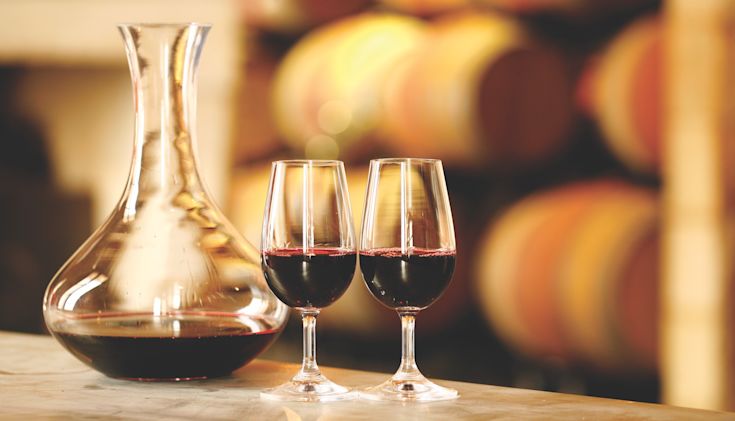
How to store white wine?
Due to its delicate structure, white wine requires a little more TLC when it comes to storage.
Top tips for storing white wine:
Store horizontally if your wine has a cork.
Store between 8-12°C.
Once opened, consume within 3-5 days.
Once opened, store upright in a fridge.
Keep in a dark, cool place.
If you’ve got age-worthy whites, a wine fridge will be your best bet.

Storing wine doesn’t have to be complicated – or expensive. A cool, dry, dark cupboard or wine rack will do the job just fine. Follow our tips and your wine will stay as the winemaker intended – whether you’re opening a bottle tomorrow or in a few years.
About the author
Brogan Wilson
Qualified to WSET Level 2 Wine, Brogan is a relatively new member of the team, having joined in September 2023. She previously worked as the sole copywriter at a creative marketing agency, and before that, as a primary school teacher. At Laithwaites HQ, you’ll find her growing her knowledge, asking lots of questions, and crafting both digital and print copy. An ardent red wine drinker, Brogan is also fond of Crémant.
